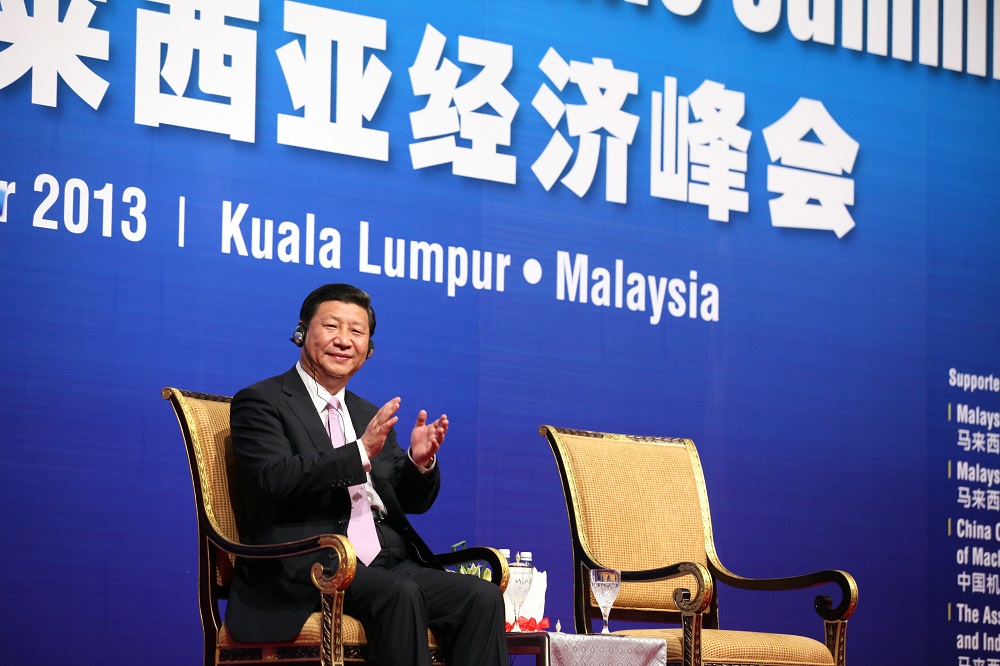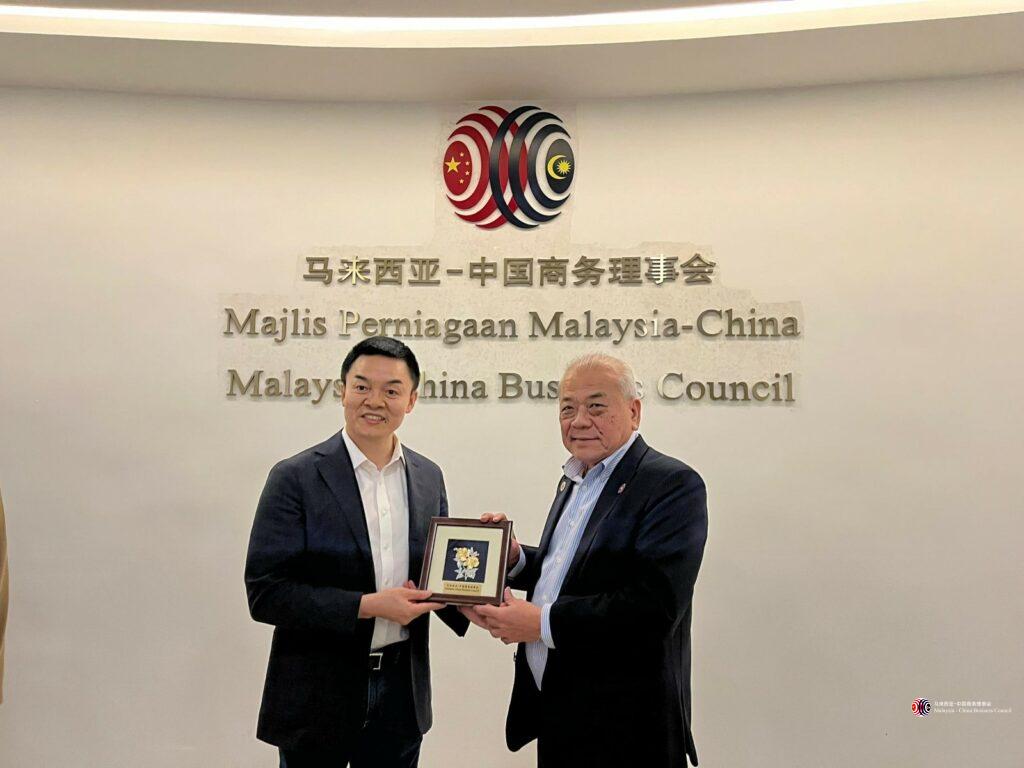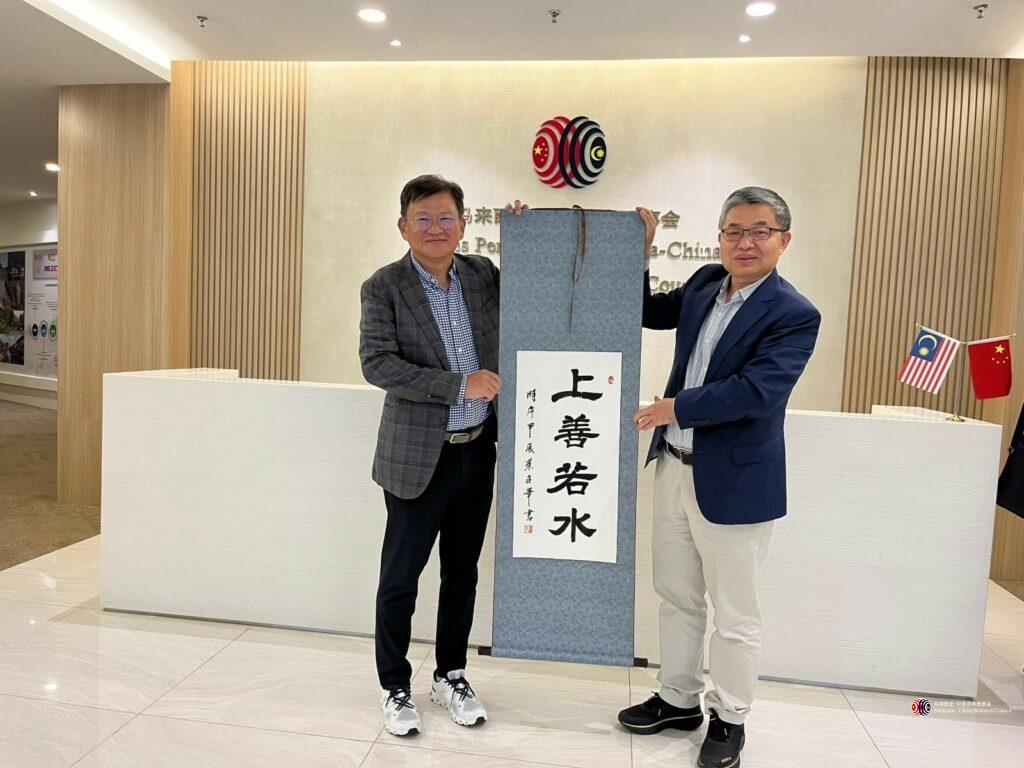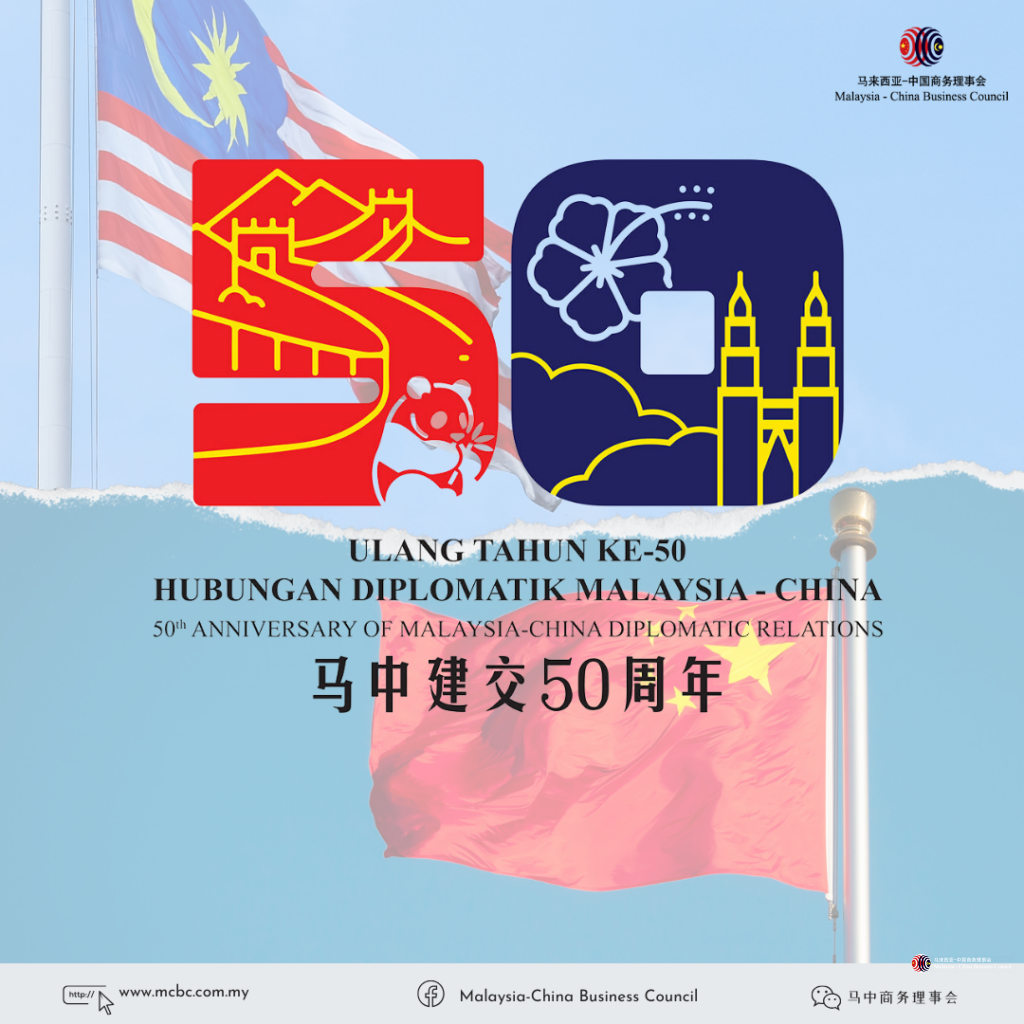KUALA LUMPUR, Oct 4: In his first ASEAN tour, Chinese President Xi Jinping made a three-day visit to Malaysia, highlighted by an agreement to elevate Malaysia-China ties to a comprehensive strategic partnership to forge an even-closer relationship between the two countries.
A five-year programme for economic and trade co-operation was signed at the Malaysia-China Economic Summit to deepen and broaden economic co-operation and raise bilateral trade to US$160 billion in 2017 from the projected US$100 billion in 2013. Four business deals worth US$5 billion were also signed.
The signings were witnessed by Malaysian Prime Minister Dato’ Sri Najib Tun Razak and President Xi at the summit meeting attended by over 1,000 business leaders from Malaysia and China at the Kuala Lumpur Convention Centre.
Dato’ Sri Najib in his key-note address described the programme as “a clear vision of our common ambition” in deepening bilateral and economic relations, yielding an elevated strategic partnership between the two countries.
He said the blueprint emphasizes the sharing of knowledge, technological resources and investment in the service of sustainable economic development. It also maps out mutually beneficial initiatives aimed at expanding business and investment opportunities.
“And President Xi and I have set an ambitious target: that by the end of the fifth year of this programme, bilateral trade between Malaysia and China will hit US$160 billion,” he told the summit.
He explained that the programme is a “rolling plan”, including an early harvest of low hanging fruits – those that have been identified for immediate implementation – as well as those that require further development.
It covers co-operation in the development of agriculture, energy and mineral resources, information and telecommunications, manufacturing, infrastructure and engineering, tourism, logistics and retailing sectors.
One of the early harvest projects involves the import and export materials for processing at the industrial parks in Qinzhou and Kuantan which will make the parks more competitive and attractive to investments from entrepreneurs in both countries.
The Prime Minister said that another example was the operation and expansion of Kuantan Port in Malaysia and Weifang Port in China to increase their capacities and services and make positive contribution to external trade. He said as Kuantan seeks to double its capacity, Malaysia welcomes Guangxi Beibu’s acquisition of a 40 per cent state in the project.
The programme will also benefit SMEs, he added. By enhancing technology transfers and promoting trade fairs, it will help Malaysia to increase SME’s share of its GDP by 2020 and is in line with Malaysia’s 10-year SME Master Plan.
“The bonds between our nations were forged in the past but grow stronger in the present. The five-year programme marks the next step in our ever-strengthening relationship,” he added.
“By committing to further co-operation in pursuit of common aims, we can drive development and progress, not just in our countries, our region but also the wider world.
“China’s dream and Asia’s promise can be fulfilled together in an age marked by prosperity and stability in equal measures.”
Dato’ Sri Najib said in the four decades since Malaysia and China established diplomatic ties, the global centre of gravity has shifted to the East and by the end of the decade, Asia’s output will exceed that of Europe and North America put together.
“As Asia assumes a greater role in world affairs, the decisions we make nationally, bilaterally and regionally will have a profound impact on the global economy.
“We can show through our actions that Asia’s influence will yield peace and prosperity – in our nations, our region and our world.
“And I believe that by continuing our tradition of mutual co-operation in pursuit of shared ambitions, China and Malaysia can make a strong contribution to this agenda. Whether on bilateral trade relations or international efforts to build a more sustainable global economy, we are strongest when we work together,” he added.
President Xi praised the tremendous progress made by Malaysia in the past 21 years since 1992 when he made his first visit. He described Malaysia as “a good neighbor, a good friend and a good partner”, saying that the strong relationship was forged when Admiral Zheng He made his five stopovers in Malacca during his great voyages to the South Sea 600 years ago.
He recalled that Malaysia was first among ASEAN nations to recognize China in 1974 and in 1997, it partnered China to tackle the Asian financial crises. During the 2008 tragic earthquake in Sichuan, Malaysia gave generous support and donations to the victims.
President Xi welcomed the upgraded ties through the five-year economic co-operation blueprint and encouraged more Malaysian and Chinese investors to take advantage of the rare opportunities presented to invest in Malaysia and China, especially in the Qinzhou and Kuantan industrial parks and the five economic development corridors in Malaysia.
He expressed China’s interest to participate in the RM40 billion 330-km Kuala Lumpur high-speed rail link project, together with port development and other connectivity development. Chinese FDI stands at US$700 million, only a fraction of the US$7 billion Malaysian investments in China.
President Xi put forward several proposals to give bilateral ties a new dimension. Among them, he suggested that leaders of the two countries should keep the good tradition of frequent mutual visits, increase communication on major issues and strengthen top-level relationship. Both should enhance party-to-party exchanges and share experience on governance and policy-making.
He said the two sides should expand economic and trade cooperation in line with their respective development strategies. Both should tighten cooperation in telecommunications, remote sensing satellite and biological technology.
China and Malaysia must also make full use of the defense and security consultation mechanism, increase exchanges between the two militaries, deepen law-enforcement cooperation, and join hands in combating terrorism and trans-border crimes.
He said China and Malaysia should expand sub-national cooperation and people-to-people exchanges, urging the two sides to work out plans for celebrating the 40th anniversary of the establishment of diplomatic ties in 2014, which has been designated as the China-Malaysia Friendship Year.
President Xi also extended an invitation to Dato’ Sri Najib to visit China next year. “I would like to welcome you in Beijing in 2014,” he added.
Compiled by Hoo Ban Khee.




